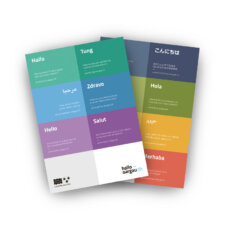Types of Permits
Working in Switzerland or remaining in the country for more than 3 months requires a permit. The permit is issued by the cantonal Office for Migration and Integration (Amt für Migration und Integration). There are short-term permits (up to 1 year), residence permits (temporary), and settlement permits (permanent).
- Short-term permit (L): This permit is for persons who will reside in Switzerland for a limited time (usually 1 year) for a particular reason. Most citizens of EU-/EFTA-countries who have evidence of a work contract with a duration between 3 months and 1 year are entitled to this permit.
- Residence permit (B): This permit is for persons residing in Switzerland for an extended period of time. Most citizens of EU-/EFTA countries are entitled to this permit if they have a work contract with a duration exceeding 1 year. EU-/EFTA-citizens will receive permits for a duration of 5 years. Citizens of other countries will receive permits for a duration of 1 year after which an extension must be applied for. The extension may be granted under certain conditions, such as that applicants take German classes. Applicants are not entitled to an extension. Reasons that may speak against an extension include, for example, a criminal offence or dependency on welfare. Recognised refugees are also granted B permits.
- Settlement permit (C): This permit is granted following 5 or 10 years of Swiss residency. Here, too, different conditions apply to persons from EU/EFTA states and third countries.
- Provisionally admitted foreigners (F): This permit is granted to asylum seekers who have not been officially recognised as refugees, but have been provisionally admitted. This permit must be renewed every year.



